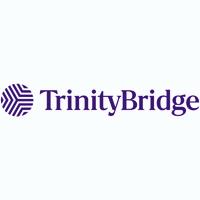Are you ready to step up to the Lifetime Savings Challenge?

One more step up if they are confident that their savings are currently held in the right products for them. But if they are confused about their savings choices, they must take one step backwards.
Then, if they know how to compare different savings options, they get to take a step forward - and another if they know where to go to get help with how to manage their money.
Do they own their own home? One more step forward. But wait - it's one step back if they do not regularly review their pension.
It may not be the ultimate office Christmas party game, but as a way of illustrating how different people are handling their lifetime savings challenge, the 'step up' exercise can deliver a very powerful message.
We did this with a group of employees following our recent Lifetime Savings Challenge 2017 research and you can see what happened in this video. The results were interesting - as were some of the comments that we received from the people who took part:
"I really don't know enough. I don't know where the money is"
The Lifetime Savings Challenge 2017 showed that employees know that not saving enough will affect them in the longer term. Inadequate income in retirement (55%), lower quality of life (51%) and the need to work longer (52%) were all identified as dangers of not contributing to long-term savings.
But while the risks might be evident, people are still not taking action. A third of respondents to our research said they were saving less than £50 a month.
Employers are in a great place to help their employees learn more about their finances and the importance of saving, but at the moment, the reach of financial education is limited with just 19% of employees saying they've received financial education from their employer.
And while 75% of employers claim to offer some form of education, it is often too narrowly focused, with pension providers only prepared to talk about pensions, for example. That leaves knowledge gaps, preventing employees from building a full picture of what's on offer to them.
"I've let things just slide - I want to get them back on track"
A savings strategy that works at one stage in an individual's life might not be appropriate when circumstances change. It's too easy to let financial wellbeing slip and not review options regularly.
Saving into the right products at the right time means taking account of employees' changing situation and lifestyle goals. Those will change with age, personal circumstances, income and other factors. And yet, very few financial education strategies can be individually tailored (27%) to take account of those differences.
Financial education is often only offered at specific points in an employee's life. Among employers who offer a financial education programme, 41% target retirees, and 49% target new joiners. While education is definitely beneficial at both of those points, it's also important to support the financial education needs of all employees, to help them assess their personal priorities and choose the right products at the right time.
"There's just too much information, and that can put you off"
There is no shortage of detail out there about financial products - whether from friends and family, websites offering product comparisons and savings tips, or financial advisers. But that sheer volume of information can be daunting, especially if you are not confident about the basics of savings products. Only 40% of individuals said they are confident in choosing a financial product that will help them to achieve their savings ambitions.
When we asked employees for their most-trusted sources of financial advice, employers came a lowly seventh (money advice sites scored highest with 39%). And yet only 7% of employees said that they had received no proactive enquiries about personal finance issues from their employers over the last year. There is clearly interest in financial education in the workplace, and if it is offered in a clear, accessible format, it can help employees to cut through the confusion.
"I want to go away and understand who my pension is with, how much is invested, and what it's worth. I didn't even know that you could find out that information"
Around a third of employers (31%) said that they have had proactive enquiries from employees about their company pension scheme in the past year. In addition, they've also had enquiries about contribution levels (20%) and whether to save into an ISA or a pension (18%).
Employees are interested in knowing more about their savings - but they are not that engaged with traditional communication methods such as annual benefit statements. It also appears that employers' messages are generally limited. For example, only 12% of employees said that they had been contacted about auto-enrolment.
Just over a quarter (25%) of employers say that they offer financial education to ensure that employees understand and make the most of their benefits. There is clearly more work to be done on making sure that individuals understand the basics of core benefits such as their pension.
Developing financial education and communications strategies that help employees to understand the importance of saving, and enables them to find the right products in which to do so, are critical. If you play the step-up challenge yourself, you may find that too many employees are languishing on the lower steps. That has to change if we are to avoid a future savings crisis. It's time for employers to step up and support their employees' lifetime savings challenge.
This article was provided by Close Brothers.
Supplied by REBA Associate Member, TrinityBridge Limited, formerly Close Brothers Asset Management
TrinityBridge has been delivering workplace financial wellbeing programmes to some of the UK’s best-known employers for over 55 years.






